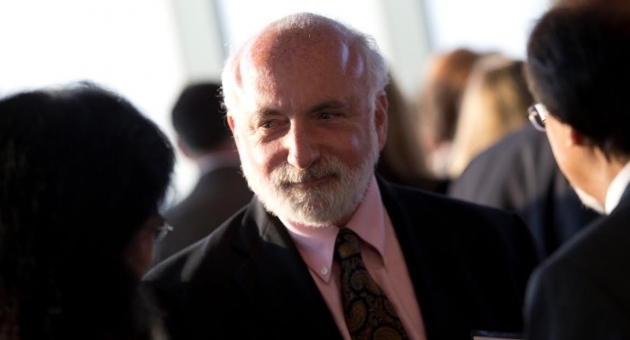
Temple Psychology Professor Laurence Steinberg has been named one of this year’s recipients of the Elizabeth Hurlock Beckman Award, which recognizes a small number of leading scholars in the fields of medicine, law and psychology.
Steinberg, Distinguished University Professor and Laura H. Carnell Professor of Psychology, was honored not just for his groundbreaking research on adolescence, brain development and teen decision-making, but for his teaching.
"We are thrilled that the Beckman Award Trust has chosen to recognize Dr. Steinberg for his dedication to his students,” said College of Liberal Arts Dean Teresa Soufas. “He is an excellent example of how an active researcher brings his scholarship to the classroom."
The $25,000 award specifically honors academic faculty members who have “inspired their former students to make a significant contribution to society.”
“This honor is doubly meaningful to me,” said Steinberg. “It’s always flattering to be recognized for one’s teaching. But it’s especially special to be recognized for having helped one’s students go on to do great things that make a real difference in the well-being of families and communities.
“I’m exceptionally proud to have been able to work with the terrific young scholars I’ve mentored over the years at Temple, University of Wisconsin and University of California, Irvine.”
An internationally recognized expert on psychological development during adolescence, Steinberg is a frequent consultant on juvenile justice issues and public policy to state and federal agencies and lawmakers.
The U.S. Supreme Court’s 2005 landmark ruling in Roper v. Simmons, which abolished the juvenile death penalty, relied significantly on the argument advanced by Steinberg and his colleagues that adolescents are fundamentally different from adults in ways shown by scientific studies of brain and behavioral development.
Steinberg also served as scientific consultant on the amicus curiae briefs submitted to the U.S. Supreme Court by the American Psychological Association in Graham v. Florida, which banned the sentence of life without parole for juveniles convicted of non-homicide crimes, and Miller v. Alabama, which prohibited mandatory life without parole for all juvenile crimes.
He is the author of a dozen books on adolescence and parenting, including Age of Opportunity: Lessons from the New Science of Adolescence (Houghton Mifflin Harcourt, 2014), and a frequent contributor to The New York Times, The Wall Street Journal and The Washington Post.